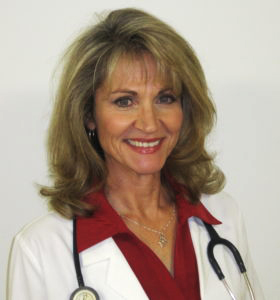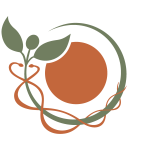
Why I became a Naturopathic Medical Doctor

I’ve often been asked (and at times even pondered) why I became a Naturopathic Medical Doctor.
I have been interested in nutrition and health for as long as I can remember! My fifth grade science project tested the need for guinea pigs to consume foods containing vitamin C. Science has long established that guinea pigs, monkeys and humans are not able to produce an enzyme called L-gulonolactone oxidase (GLO) that converts glucose to vitamin C. This knowledge didn’t dilute my devastation when my vitamin C deprived pet guinea pig perished. A blue ribbon for the project helped a little, but my future in research was hampered by the fact that much of the nutritional research is done with animals for the very reason I had proven – vitamin and mineral deficiencies do result in illness and even death!
Never the less, I studied Food Science and Nutrition in college as a premed degree. Shortly after graduating with my Bachelor of Science degree, I was married and became pregnant so I decided to take a year off to have our child. That plan turned in to three more children and 16 years of being fortunate enough to be a stay-at-home-parent. In that time, I continued my education via outreach programs and self study in the fields of gardening and food preservation, nutrition, emotional health, women’s studies and mythology. Midlife hit on my 45th birthday and prompted my application to graduate school. I never made it back to college, however, as medical school was still beckoning.
In 2007, I read a book by a naturopathic medical doctor and used the information therein to cure a urinary tract infection (UTI) with herbs. I was overjoyed and surprised because I had endured frequent UTIs previously and they always seemed to occur on Sundays or holiday when it was impossible to obtain antibiotics. Shortly after my herbal cure, I attended a wellness festival where I listened to a naturopathic medical doctor’s talk on women’s health. I really didn’t know what a Naturopathic Medical Doctor (NMD) was, but from then on, I was hooked! I can still remember thinking, “This is it! This is what I am meant to do! This is why I didn’t go to [allopathic] medical school!”
When I look back, I marvel at how everything seemed to fall in place. I enthusiastically enrolled to retake the required college courses to begin studies as a naturopathic medical doctor. Learning was much different the second time around. My age and experience had provided a thirst for knowledge and a dedication for understanding that I am grateful for to this day. In the fall of 2008, I entered the medical school program at the Southwest College of Naturopathic Medicine (SCNM). I chose to concentrate in women’s medicine and in the spring of 2012, I graduated with a GPA of 3.78, then studied for and passed my board exams that fall.
The four years of naturopathic medical training, included the basic medical courses common to all medical schools, in addition to Environmental Medicine; Traditional Chinese Medicine and Acupuncture; Botanical (Herbal) Medicine; Nutritional Medicine; Homeopathy; Hydrotherapy; Physical Therapy; Intravenous and Injection Therapy, Minor Surgery, Pharmacology and clinical rounds. Click here to compare the naturopathic curriculum with allopathic medical training.
While allopathic medicine focuses on disease management, naturopathic medicine regards healthcare as an optimal state of physical, mental, emotional, and spiritual wellbeing. Throughout our education, biochemistry (the chemical processes that occur in living organisms to create life) and physiology (functions and activities of life in organs, tissues, or cells) were emphasized to advance our understanding of how each treatment modality affects the body.
Scientifically validated alternative medical treatments were focused on, but the energetic principles of the body that are less conducive to scientific validation and study were also included. We studied various psychological therapies utilized today and were continually reminded of the mental and emotional influences of healing. I am deeply grateful for the variety of tools I have to address an imbalance, rather than depending on a singular therapy to do so.
Since nutrition and gastrointestinal (GI) health are regarded as the foundation of overall health, it’s no wonder I was drawn to the profession. Yes, the phrase, “we are what we eat” is true! The quality and availability of the vitamins, minerals, carbohydrates, proteins, and fats from food and drink – and the ability of the GI tract to absorb them – determine what is available to produce cells, energy, enzymes, hormones, and neurotransmitters that allow the intricate metabolic processes to occur. As I discovered as a ten year old, deficiency in essential nutrients leads to multiple imbalances and disease ensues.
It’s not surprising, then, that my primary task is evaluating the nutritional and digestive health of my patients. My postdoctoral training in the gut microbiome, genomics and epigenetics has been a fascinating exploration in improving gut health and using nutriceuticals to correct impaired metabolic processes to create balance. It is immensely gratifying when patients can discontinue taking pharmaceuticals that have undesirable side effects in favor of using a vitamin or mineral supplement to balance the body’s chemistry.
What I didn’t know about Naturopathic Medicine was the importance of the principles (in bold below), which form the foundation of this type of medicine. I would not fully understand or appreciate these principles until after I had practiced long enough to understand of the business of allopathic medicine (a subject too immense to discuss here). I have learned to hold these principles as foremost in my mind when I see patients so I will explain the principles now.
The life force that animates each and every living organism is a presence that I have come to deeply respect and venerate. In naturopathic medical philosophy, this is known as “The Healing Power of Nature (Vis Medicatrix Naturae)” or the “Vis”, which is an inherent self-healing process that is ordered and intelligent. To support the Vis, the prime directive of “First Do No Harm (Primum Non Nocere)” is the underlying mantra as we
- utilize methods and medicinal substances that minimize the risk of harmful side effects, using the least force necessary to diagnose and treat;
- avoid when possible the harmful suppression of symptoms; and
- acknowledge, respect, and work with individuals’ self-healing process.
For example, the radiation from a CT scan will significantly increase the risk of cancer. Therefore, a thorough history of the illness, a physical exam and less invasive imaging, such as an ultrasound, are used to determine the cause of a symptom with CT scans reserved as a last resort when possible. Another example is contact dermatitis, a rash that has occurred as a result of the body’s immune system reacting to an allergen. Investigation of the cause, rather than suppression the rash with a corticosteroid or even an herbal preparation is important to avoid proliferation of a more harmful internal disease, such as autoimmune diseases or cancer that can result from chronic inflammation.
Rather than a mechanistic approach to the body, I gained an understanding of the orchestrated dance of the various systems of the human body as they create life. This, then is the reason for the naturopathic mantra of, “Treating The Whole Person”. It takes more than a 5 minute office visit to thoroughly evaluate the physiological, psychological, sociological aspects of a person’s being and is why the first office visit can be one and a half hours long.
True healing occurs by identifying and treating the cause rather than to merely eliminate or suppress symptoms with psychological and physiological dependency on chemicals. Since “Identify and Treat the Causes (Tolle Causam)” is an important prime directive, the whole person must be addressed when analyzing and treating any symptom or disease. Although endocrinology, gastroenterology and immunology are my favorite subjects, I feel they can never be studied alone or specialized in due to the interconnectedness of all the body’s systems – the health of one affects the health of all.
Probably one of the most prominent factors for why I am drawn to naturopathic medicine is the principle of “Doctor as Teacher (Docere)” because I love to educate patients and encourage self-responsibility for health. Freedom is our greatest gift and although guidance is an important aspect of my role, it is ultimately up to my patients to make the choices that promote health and wellbeing. If I have provided them with the tools and supported the Vis, then I can respect their choices.
The final principle of “Prevention” is why Naturopathic Medical Doctors are so fantastic with treating chronic disease. We emphasize the prevention of chronic disease by assessing risk factors, heredity and susceptibility to disease, as well as making appropriate interventions in partnership with patients to prevent illness. I like partnership because rather than having the “I’m big, you’re little, I’m all-knowing, your not, I’m right, you’re wrong” approach, I can sit down with my patients and ask them what they are able and willing to do to improve their health. Again, back to freedom – when a patient feels in control, rather than dependent, therein lies healing.
I have come to respect this profession of a naturopathic medical doctor in ways that I didn’t understand while I was learning it. As I help patient after patient reduce their reliance on the pharmaceuticals that have been prescribed to address symptoms, I realize my profession is more of a calling than a job. My own prime directive at the end of every day is that I have, to the best of my ability, assisted my patients in improving their health and wellbeing and I am grateful for their trust.



